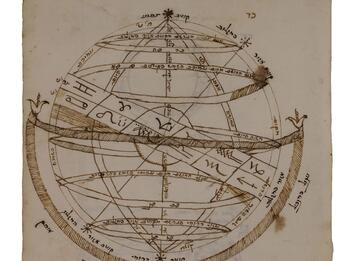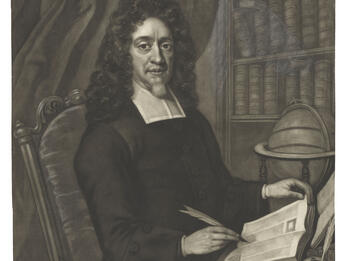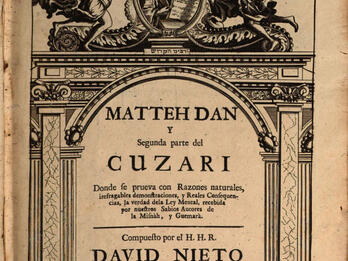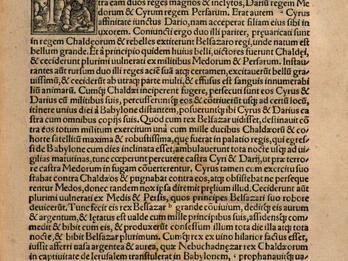Emunat omen (The True Faith)
Meyer Schomberg
1746
These hypocrites maliciously break all Ten Commandments. All they do is only for show. They pride themselves that they believe in the existence of God, may He be blessed, while in truth it is not so, because inwardly they deny His existence and His unity. The fool says in his heart, “There is no God.” They do not believe in Him who said, “I am the…
Related Guide
Early Modern Trade and Mercantilism
International trade drove Jewish mobility during the age of mercantilism, as Jewish merchants formed wide commercial networks and partnerships and developed cosmopolitan attitudes that facilitated civic inclusion.
Related Guide
Spinoza and the Heterodox Challenge
Baruch Spinoza is notable for rejecting Judaism without converting to Christianity. After his excommunication from Amsterdam's Sephardic community, he developed the basis of modern biblical criticism.

Related Guide
Education and Scholarship
The early modern period featured educational reforms, anti-Christian polemics, and growing Jewish university participation.
Creator Bio
Meyer Schomberg
A physician of German descent, Meyer Schomberg settled in London in 1721. Initially, the Great Synagogue employed him to tend to poor members of the community. However, he subsequently established a profitable practice. In 1746, he composed his (unpublished) essay Emunat omen (The True Faith), in which he defended his way of life and attacked the hypocrisy of London’s Jewish elite. Not religiously observant himself, Schomberg decried the false piety of Jews who outwardly observed Jewish law but were “sinners” at heart. His deist-humanist work argues that moral behavior is more important than Jewish law. Schomberg began his work with seven articles of faith (of the thirteen listed by Maimonides). Ultimately, Schomburg cut all ties with the Jewish community. In his will, he asked to be buried as an Anglican, and some of his children converted to Christianity.
You may also like

Mateh Dan (The Tribe of Dan)

Portrait of David Nieto

Spanish Edition of David Nieto’s Mateh Dan (The Tribe of Dan)
Letter to Mordechai Margoliot
Letter to Isaiah Bassan



